Economy
How much will Thanksgiving dinner cost in 2024?

Spark some fact-based discussions around the Thanksgiving table with this buffet of government numbers from USAFacts. This is no side dish of data; this is a full-on fact feast. Mark this American holiday with charts, figures, and metrics on the American people.
Have dessert first, starting with seven tasty pie charts!
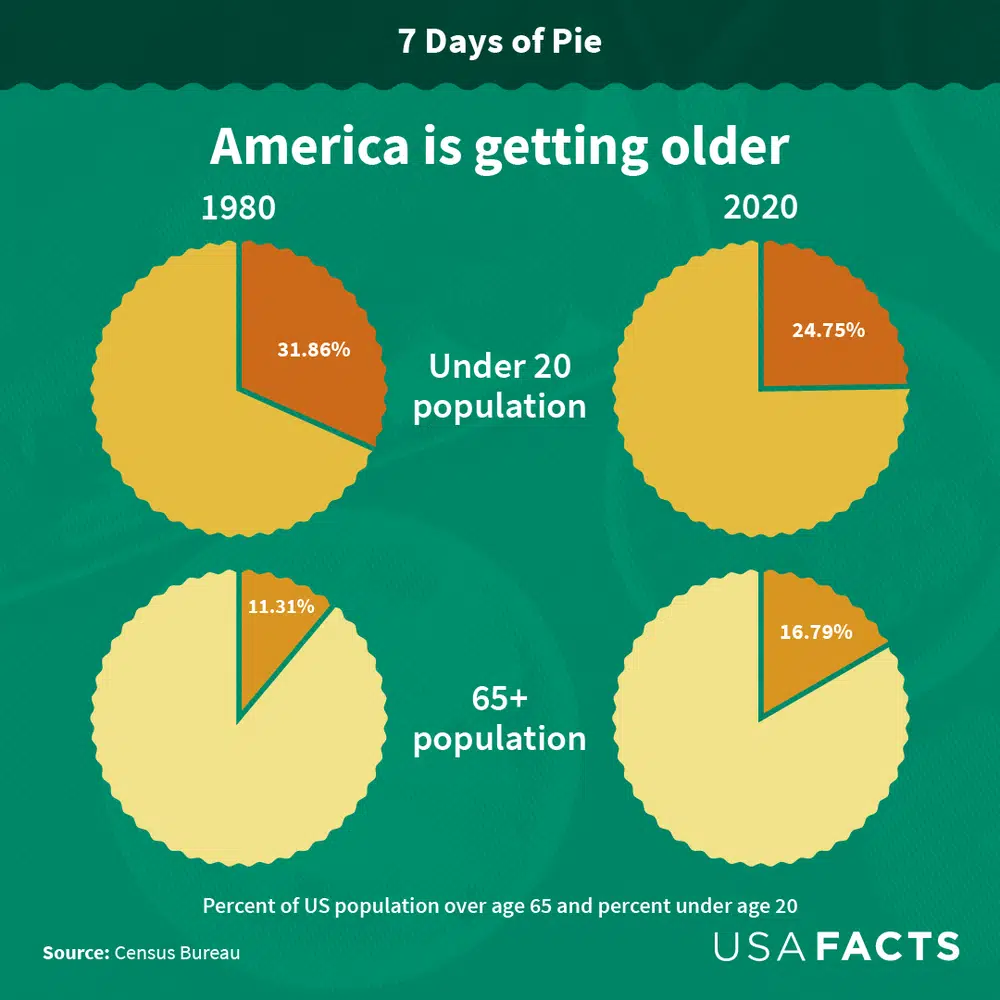
2. In some households, GDP stands for genuinely delicious pie. Around here, it stands for gross domestic product, also known as the value of all goods and services produced in the US. GDP increased by 5.7% in 2021—the highest growth rate in 37 years. California, Texas, New York, Florida, and Illinois combined contributed 41% of the national GDP.
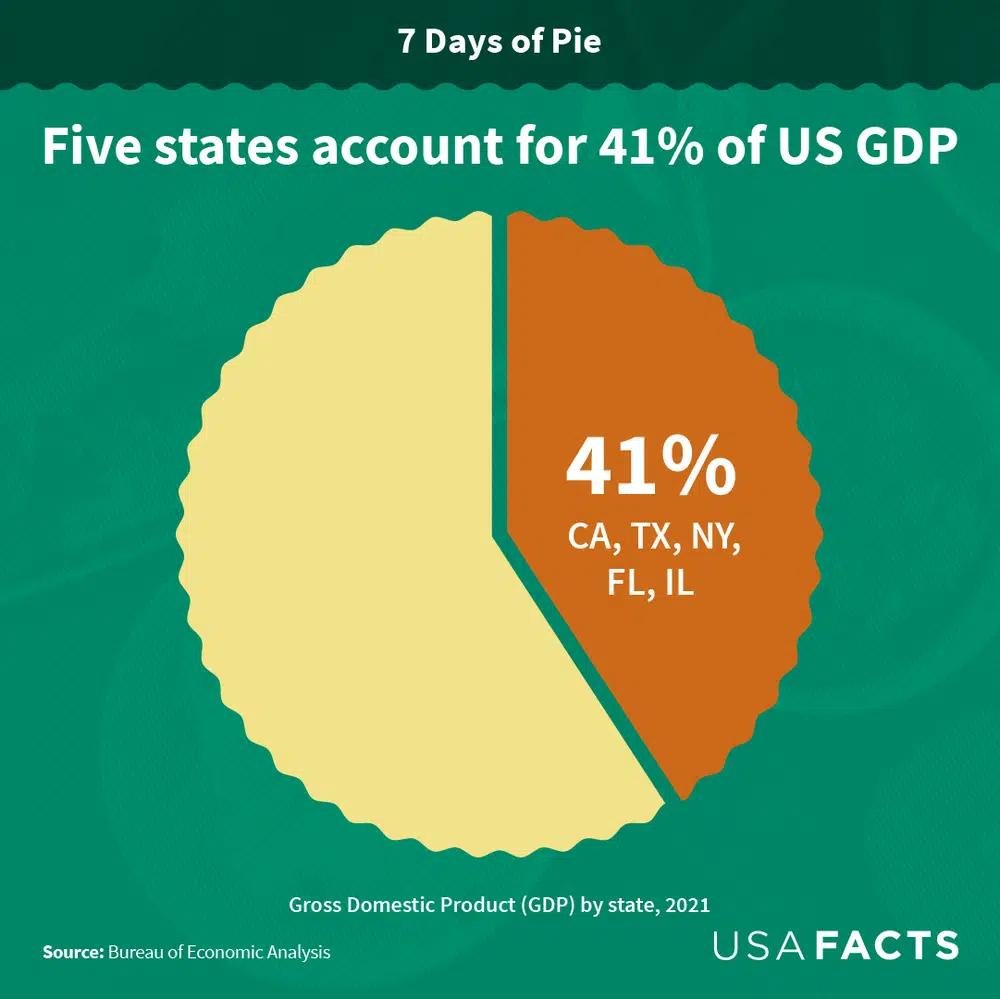
3. Looking for something to talk about during dinner? The odds are good that at least one person at your holiday gathering either switched occupations or left the workforce last year. Bartenders were most likely to change occupations, but maybe they’ll still mix some cocktails for their friends and family.
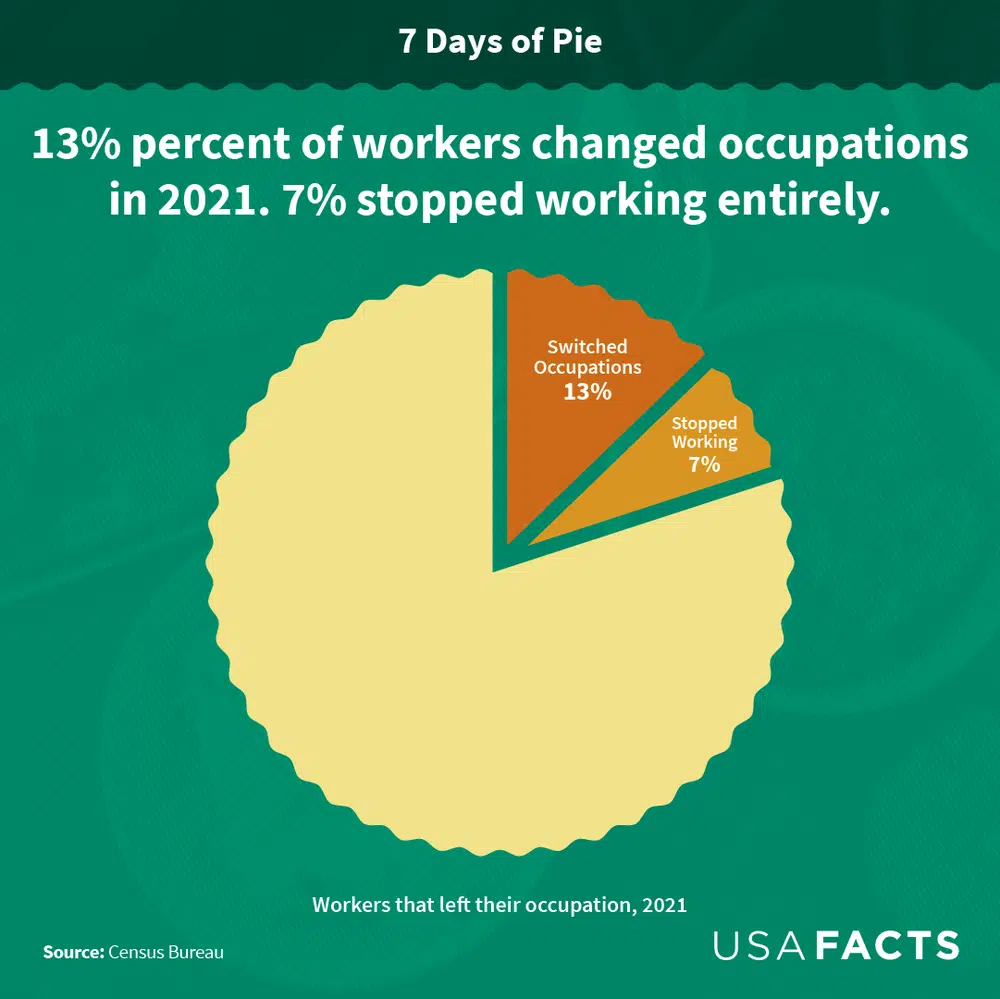
4. Relationships around the dinner table might look a little different this year than in the past. The Census Bureau doesn’t have data on how many Americans are in love, but it does keep track of marriages and living arrangements. In 2021, 47.3% of households had married couples and 11.1% of people lived alone. Those figures were 74% and 3.9% in 1960, respectively.

5. How are American households keeping the lights on during the holidays? The government doesn’t keep track of gingerbread-scented candles, but they do have data on renewable electricity sources. According to the US Energy Information Administration, renewable energy sources (wind, hydroelectric, solar, biomass, and geothermal) contributed 20% of US electricity in 2021.
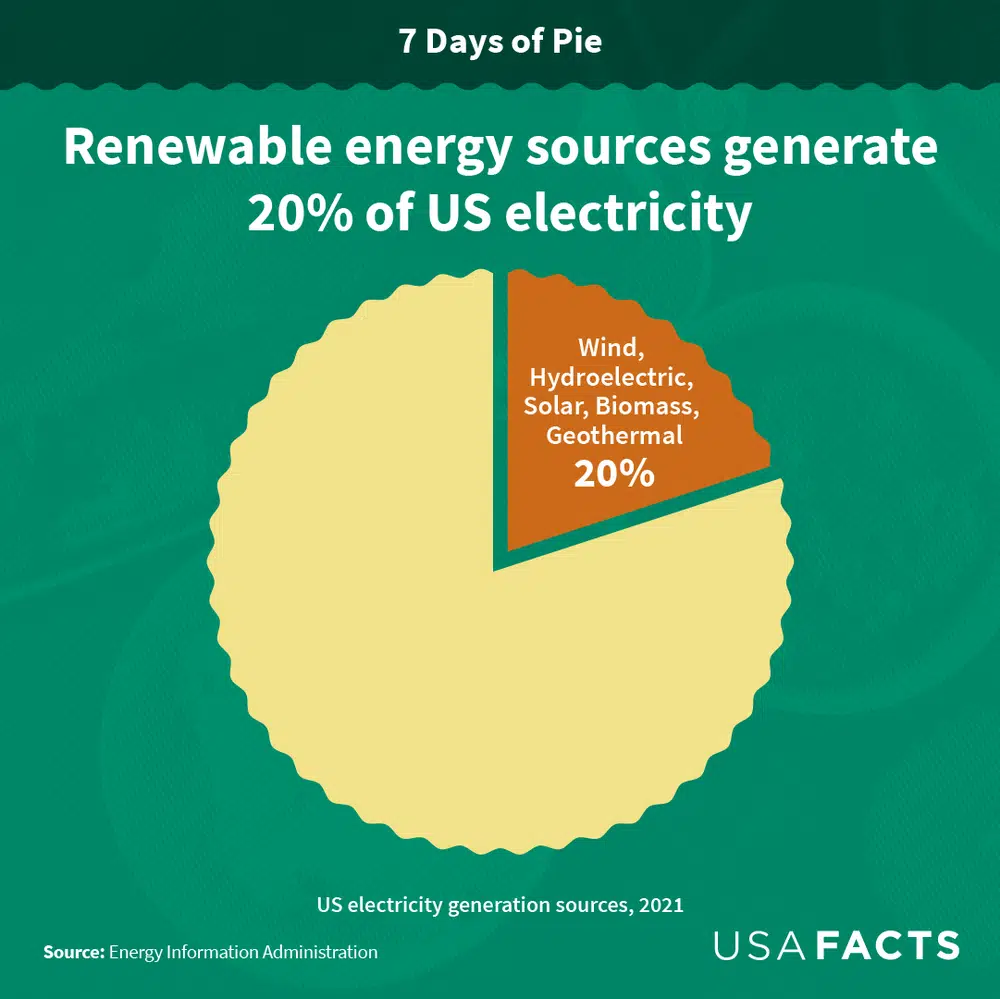
6. Federal student loan borrowers might have something extra to be thankful for this year. In August, President Joe Biden announced he will cancel up to $10,000 in federal student loan debt for borrowers who earn less than $125,000 a year, or families earning less than $250,000. The Biden administration will also cancel an additional $10,000 in federal loan debt for Pell Grant recipients.

7. Middle class families are getting a smaller slice of the pie this year. According to the Federal Reserve, middle class families (the middle 20% of income earners) went from owning 12% of wealth in 1990 to 7% in 2021. The middle class is also getting older, working less, and receiving more support from government programs.

Food prices are up 10.9% from one year ago (Oct 2021 – Oct 2022). USAFacts collected the inflation data on holiday food staples for a look at how much more Americans might spend on meals this holiday season. Bakers might put fewer batches in the oven when they see the prices of flour and butter.
Most costs are also up for holiday travelers, especially for those flying to their destinations. In fact, average flight costs hit all-time highs in 2022.
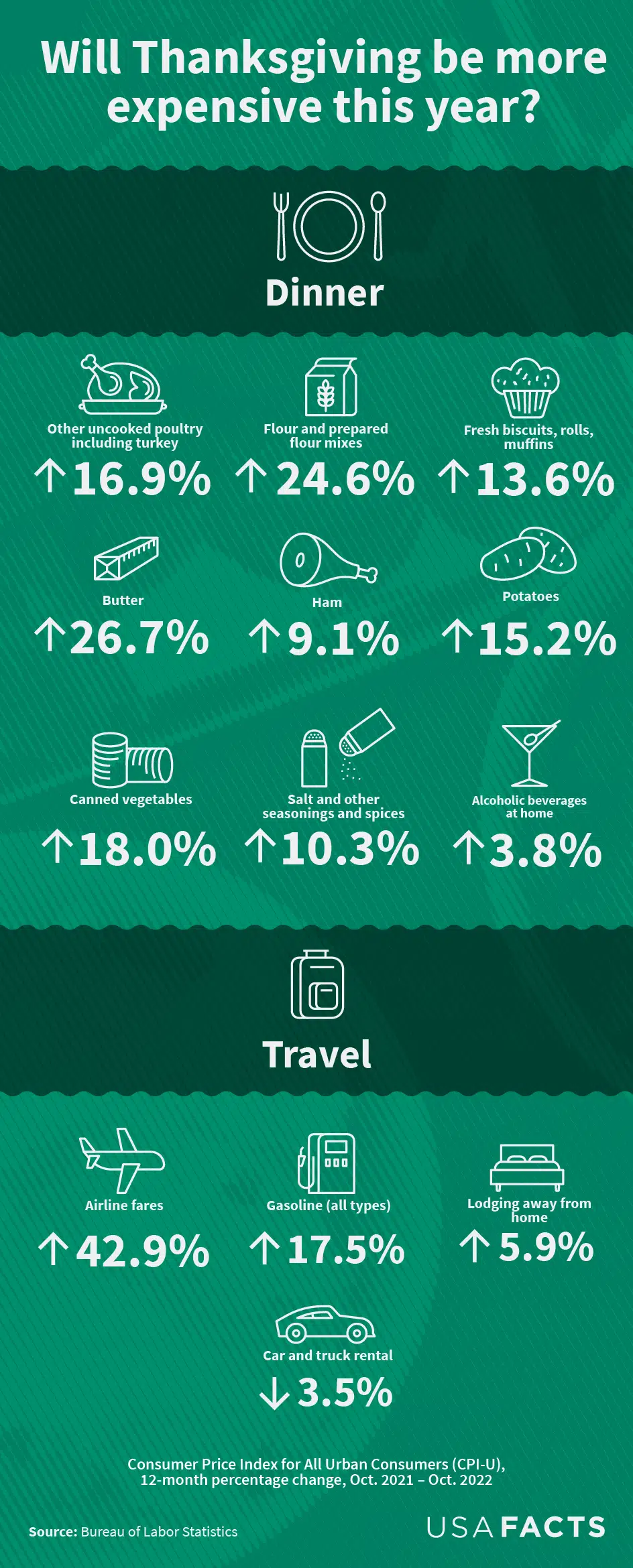
Grab a plate and dig into these articles for a second helping:
Newsletter
Keep up with the latest data and most popular content.